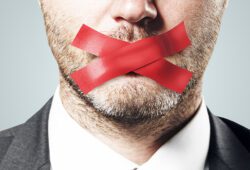A recent showdown between social media juggernaut TikTok and Universal Music Group (UMG) has caused significant shockwaves among the platform’s young devotees. After UMG unexpectedly revoked licensing rights to prominent artists’ song catalogs, TikTok began abruptly removing widely-used tracks from its mobile app. This prompted confusion and frustration among users.
An in-depth analysis conducted by marketing agency SAMY Alliance examined social media conversations related to this TikTok music ban from January 28th to February 4th, 2024. Across all platforms, the study uncovered over 21,000 posts from outraged users voicing complaints regarding the controversial song removal.
Advanced sentiment analysis painted a more nuanced picture of the escalating situation. Results showed nearly 50% of total mentions conveyed outright negative perception, signaling mass displeasure and objections among TikTok’s loyal fans.
Considering young audiences already spend an average of 52 minutes daily on the app, this atmosphere of resentment stemming from the music purge could precipitate tangible shifts in user behavior going forward.
Pop icon Taylor Swift emerged as a central sticking point due to her undisputed status as the unofficial “queen” of Gen Z. The bulk of TikTok’s most popular sounds originate from Swift’s prolific song portfolio. Thus her legions of supporters directed the plurality of anger toward TikTok itself for restricting the singer’s melodies.
Out of all 21,000+ posts analyzed, approximately 20% centered specifically on Taylor Swift and her removed discography. This highlights the tremendous influence she wields among TikTok’s youthful demographic. Many users vowed to lessen time spent scrolling if their favorite Swift hits remained off-limits.
Beyond Swift, A-list musicians like Bad Bunny, The Weeknd, Drake, Billie Eilish and others also faced TikTok termination. Combined they account for billions of video views and smooth soundtrack transitions on countless viral trends. Both creators and fans feel slighted by the erasure of key songs they rely upon to produce engaging content.
However, some opportunistic creators chose to combat the music rights relapse through ingenious workarounds. Talented singers began sharing cover versions of deleted chart-toppers while tagging the posts to increase visibility.
For example, singer Euan Blackman uploaded his take on Swift’s 2020 ballad “betty” with an invitation for followers to use his rendition as a replacement. The video is gaining traction and driving more eyes to his page. Similarly, artist Talia Sporkin posted a cover of Swift’s 2023 empowerment anthem “Sl*t!” while asking fans to request additional Swift songs they’d like to hear her recreate. Her posts have collectively drawn 70,000+ likes so far.
@taliasporkin14 comment more sounds you want me to cover!! #taylorswift #umg #coversong #singersongwriter #swiftie #1989taylorsversion
This brings an interesting dynamic to light. Could this music mishap actually create new organic opportunities that benefit non-mainstream talent? By providing cover versions, lesser-known creative hopefuls stand to capture renewed attention from engaged audiences. Their content fills a tangible void left by the abrupt removal of hit tunes.
Meanwhile behind the scenes, rumors swirl regarding which rival social platforms stand to gain the most from TikTok’s licensing loss. When Instagram launched its clone feature Reels to compete with TikTok, many analysts noted it permanently lagged behind in capturing younger demographics. However, with licensing limitations stripped from Instagram’s music offerings, this could be the chance to lure disgruntled TikTok users into its ecosystem.
Several posts highlighted Instagram’s capacity to continue supplying Universal’s record catalog through Reels as a potential competitive advantage. They noted that while TikTok scrambles to mitigate brand damage, Instagram may quietly scoop up increasingly valuable Gen Z eyeballs.
The data paints a clear picture – TikTok is likely to experience reduced impressions and activity as key songs vanish indefinitely. While the platform’s devotees seem unlikely to delete their accounts entirely, they will significantly alter behavior as the app loses cultural currency sans chart-toppers.
To that end, TikTok competitors have a prime window to implement strategies capturing disappointed users through mirroring viral sounds and reacting to trending moments. Likewise, brands must remain nimble by maintaining audience-centric presences across multiple platforms.
They must also demonstrate understanding and flexibility as the turbulent digital landscape continues evolving rapidly. The companies that construct consistent yet adaptable brand interactions will foster lasting consumer relationships despite external turbulence.
Rivals like Instagram and savvy creators are poised to exploit the instability by offering crowd-pleasing cover tunes. Ultimately agile brands and talent may benefit enormously from this watershed moment.
MUST Read Articles:
-
Storytelling: How to Capture Hearts and Minds Through Impactful Brand Stories
-
Google Pixel Takes Top Honors in Kellogg School’s Super Bowl Ad Review for Second Consecutive Year
-
Adidas Launches Empowering Campaign to Disarm Negative Pressure in Sports
-
New Era Cap Unveils Exclusive Collection Celebrating Kansas City Chiefs’ Historic Super Bowl LVIII Victory
-
Toyota Motor North America Showcases the 2024 Tacoma in a Thrilling Super Bowl LVIII Ad










